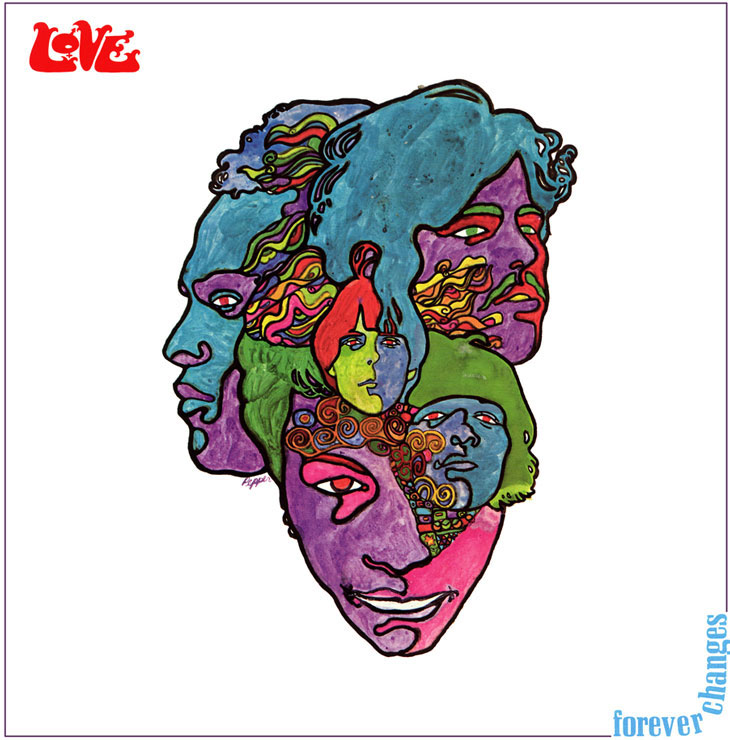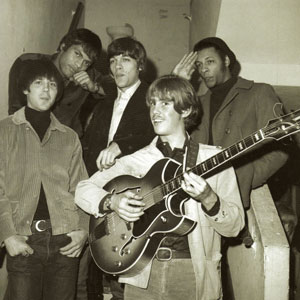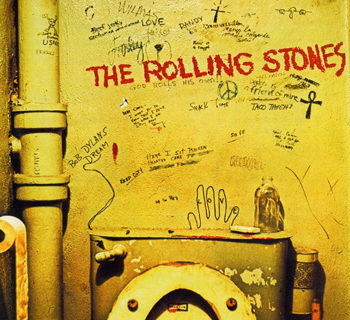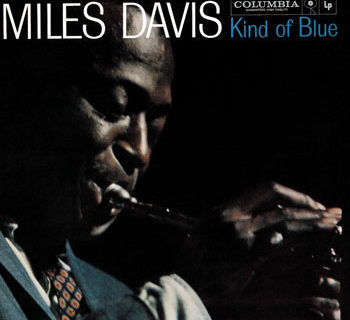Album #50: Love-Forever Changes
“Sitting on the hillside, watching all the people die”
Once, you were cosmic dust floating in the vast reaches of space. Then, through the power of love, drugs, idealism or any combination, you became you. Then you grew older, and life kept on changing, as did you. One day, your energy will cease, and you will once more return to the stars. In other words, death is only an illusion and life ever changing.
The above is my key to the heart of Forever Changes, released in 1967 by psychedelic rockers, Love, one of the first racially diverse bands in America. The album–which belies its complexity in tight compositional alleys–is a careful mix of baroque symphony, acoustic folkisms, and the despair of honesty and mortality. Lyrics float above the soft-flowing slices of psychedelia with themes of loneliness, peace, love, and why that’s so damn hard in a world so brutal. Arthur Lee, Love’s lead protagonist, is one part Nick Drake, one part Brian Wilson, and three parts British solemnity.
Lyrics float above the soft-flowing slices of psychedelia with themes of loneliness, peace, love, and why that’s so damn hard in a world so brutal.
It’s the kind of album I would listen to endlessly growing up. Songs like “Live and Let Live”, with their ravenous lead lines, “Alone Again Or” and “Andmoreagain” with their classically strung guitar parts and distinctly Brit-Folk sensibility were great for walking on the hills. Morose, but catchy “The Red Telephone” often felt more honest than it should have been.
Admittedly, as I’ve ventured out beyond the Beatles, the Beach Boys and the flower power of my youth, Forever Changes no longer has the visceral appeal it once contained. But, in place of its brightness has come the firm, oak maturity of experience, rich, dark hued, and honest; and my views have fallen in line with its shadow-tinged light.
Change is constant and unending. Initially released to lukewarm reception, this album now stands in the heights of regard. Its downturned compositions and introspection were rewarded by that merciless engine of time, which pushes all things to dissolution.
Something I always love.
Until I don’t believe in magic.













